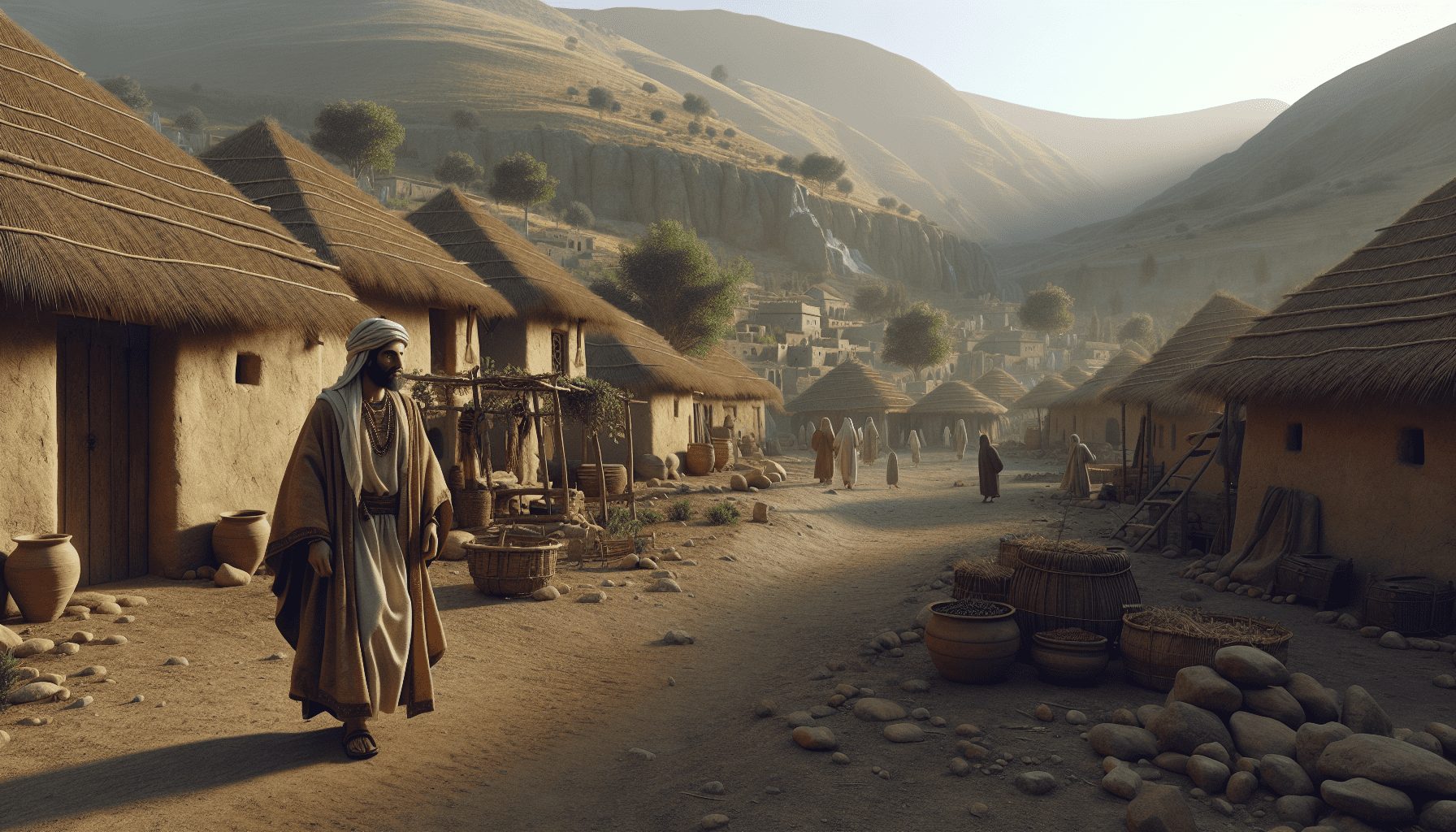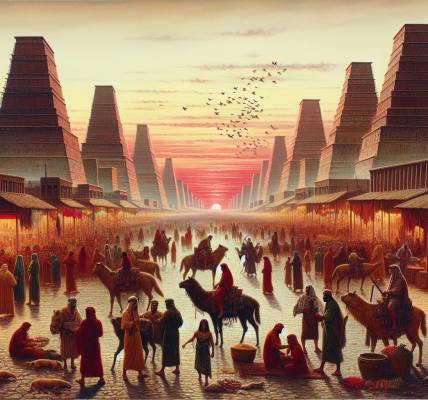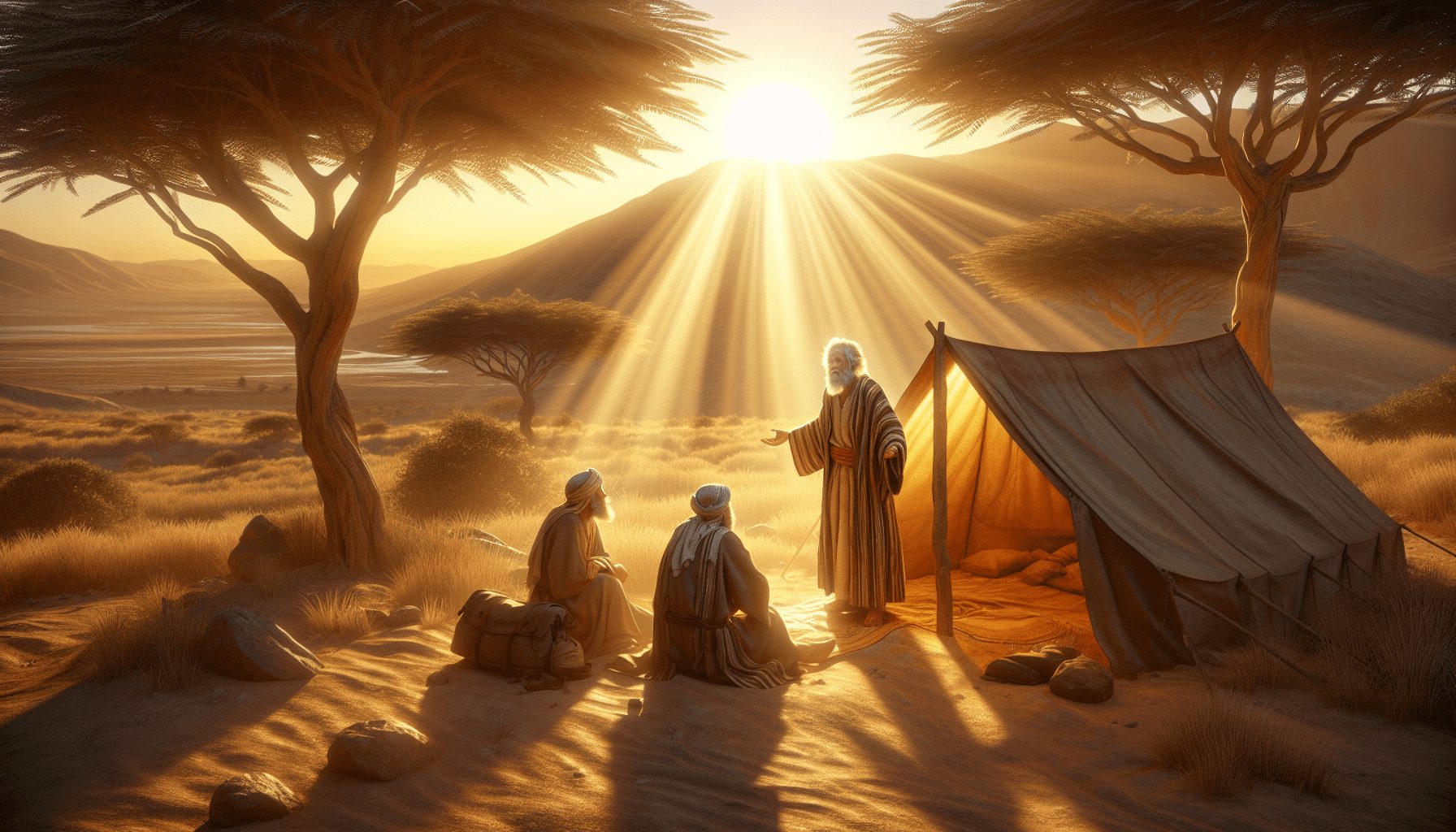**The Guilt Offering: A Story of Repentance and Restoration**
In the shadow of Mount Sinai, where the air was thick with the presence of the Lord, the Israelites had encamped, their tents spread across the wilderness like a sea of woven cloth. The Tabernacle stood at the center, its golden fixtures gleaming under the desert sun, a constant reminder of God’s holiness. Among the people was a man named Elkanah, a weaver by trade, who had come to understand the weight of sin in a way he had never before imagined.
One evening, as the sun dipped below the horizon and the campfires flickered to life, Elkanah sat outside his tent, wrestling with his conscience. Days earlier, he had been present when a neighbor, Reuben, had sworn an oath before witnesses, declaring that he had not taken a borrowed tool without permission. Elkanah knew the truth—he had seen Reuben take it—but fear had kept him silent. Now, the memory gnawed at him like a relentless hunger. The Law given by Moses was clear: *If anyone sins in that he hears a public adjuration to testify, and though he is a witness, whether he has seen or come to know the matter, yet does not speak, he shall bear his iniquity.* (Leviticus 5:1)
For nights, Elkanah tossed in his bed, his spirit troubled. The joy of his work had faded, and even the laughter of his children seemed distant. His wife, Miriam, noticed his distress. “What burdens you, my husband?” she asked one morning as she ground barley into flour.
Elkanah sighed deeply. “I have sinned against the Lord by keeping silent when I should have spoken. My guilt is heavy upon me.”
Miriam’s hands stilled. “Then you must make it right,” she said softly. “The Lord is merciful to those who repent.”
With resolve hardening in his heart, Elkanah set out for the Tabernacle. The path seemed longer than usual, each step weighed down by the knowledge of his transgression. Around him, the camp buzzed with life—children playing, women drawing water, men discussing the day’s labor—but his focus remained fixed ahead.
When he arrived, he found a priest, a son of Aaron, standing near the bronze altar. The priest, a man named Eleazar, turned to him with a measured gaze. “What brings you before the Lord’s dwelling, my brother?”
Elkanah swallowed. “I have sinned. I withheld testimony when I should have spoken. I am guilty before God and my neighbor.”
Eleazar nodded solemnly. “The Law provides a way for atonement. You must bring a guilt offering—a female lamb or goat from the flock, without blemish.”
Elkanah’s heart clenched. His family’s flock was small, and a lamb was precious. Yet he knew that no cost was too great to restore his relationship with the Lord. Returning to his tent, he selected a young ewe, its wool pure white, its eyes bright and trusting. He carried it back to the Tabernacle, his hands steady despite the sorrow of sacrifice.
At the altar, Eleazar took the lamb from him. The scent of burning incense filled the air as the priest laid his hands upon the animal’s head, symbolically transferring Elkanah’s guilt onto it. With a swift, merciful stroke, the lamb was slain, its blood collected in a basin. Eleazar dipped his finger into the blood and smeared it on the horns of the altar, then poured the rest at its base. The fat was burned upon the altar, a pleasing aroma to the Lord.
“As the Lord has commanded,” Eleazar declared, “so your sin is atoned for. You are forgiven.”
A profound peace settled over Elkanah, as though a great weight had been lifted. He left the Tabernacle with a lighter step, his spirit restored. But his repentance was not yet complete. The next morning, he sought out Reuben, confessing his silence and begging forgiveness. Though Reuben was initially angry, he too recognized the mercy of God and reconciled with Elkanah.
From that day forward, Elkanah walked with greater awareness of the Lord’s holiness and the importance of truth. He taught his children, “Sin is not merely in the act of wrongdoing, but in the neglect of what is right. The Lord sees the heart, and His mercy is vast—but we must come to Him with humility and repentance.”
And so, in the midst of the wilderness, under the watchful presence of God, Elkanah learned the depth of grace—that even when guilt presses heavy, the way of restoration is always open to those who seek it.




